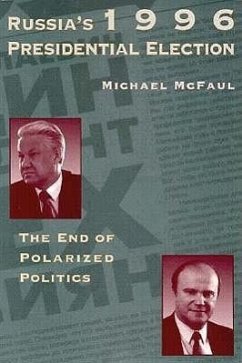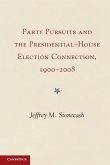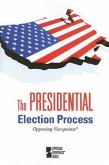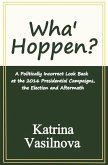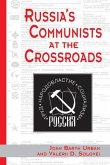In June 1996, for the first time in a thousand years, Russian citizens were given the chance to select their head of state in a democratic election. Michael McFaul analyzes three major factors that combine to explain why Boris Yeltsin's victory should have been expected, discusses the reasons behind Yeltsin's victory, and examines its impact on electoral politics in post-Soviet Russia.
Hinweis: Dieser Artikel kann nur an eine deutsche Lieferadresse ausgeliefert werden.
Hinweis: Dieser Artikel kann nur an eine deutsche Lieferadresse ausgeliefert werden.

